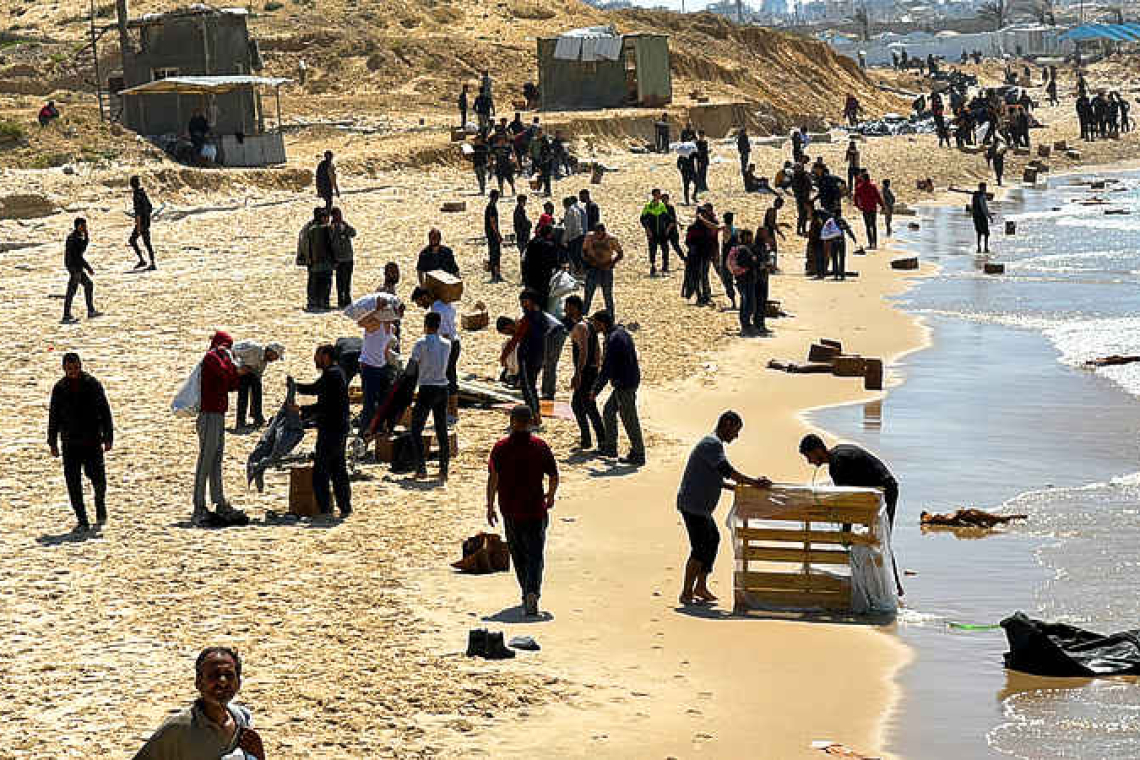WASHINGTON--U.S. Defense Secretary Lloyd Austin said on Tuesday it was a moral and strategic imperative to protect Palestinian civilians in the war between Israel and Hamas and that the humanitarian catastrophe in besieged Gaza was getting worse.
Austin was speaking at the start of a meeting with Israel Defense Minister Yoav Gallant at the Pentagon as relations between U.S. President Joe Biden and Israeli Prime Minister Benjamin Netanyahu sank to a wartime low. "In Gaza today, the number of civilian casualties is far too high and the amount of humanitarian aid is far too low," Austin said, sitting across from Gallant. "Gaza is suffering a humanitarian catastrophe and the situation is getting even worse," Austin said, using some of his most forceful language so far. After the meeting, the Pentagon said Austin had a frank and direct discussion with Gallant. The Israeli defense minister also met for a second day with White House national security adviser Jake Sullivan, who told Gallant Israel needs to increase the flow of humanitarian aid going into Gaza, White House spokesperson Karine Jean-Pierre told reporters. Israel has launched strikes and shelling in Gaza that have killed over 32,000 Palestinians, according to the enclave's health authorities - the worst conflict between Israel and Hamas, an Islamist group that runs the territory. Extreme shortages of food have prompted fears of famine, with the territory's hungry civilians foraging for a wild green plant called Khobiza for lack of anything else to eat. "We need immediate increases in assistance to avert famine," Austin said. A senior defense official, speaking on the condition of anonymity, said more aid was now flowing through land crossings and that about 200 trucks on average were crossing into Gaza daily. Their meeting takes place after Netanyahu on Monday cancelled a separate visit to Washington by two of his most senior aides who were due to hear U.S. ideas about operational alternatives. Netanyahu's fraught relations with Biden became even more strained over Washington's decision not to veto a U.N. Security Council resolution seeking an immediate ceasefire in Gaza. The United States has been working to get Netanyahu to consider alternatives to a ground invasion of Rafah, the last relatively safe haven for Palestinian civilians. Austin said he would discuss alternate approaches to targeting Hamas militants in Rafah. The senior defense official said Austin discussed potential steps like Israel's precision targeting of Hamas fighters in Rafah. The threat of such an offensive has increased differences s between close allies the United States and Israel, and raised questions about whether the U.S. might restrict military aid if Netanyahu defies Biden and presses ahead anyway. Austin said that the security bond between Israel and the United States was unshakeable. "The United States is Israel's closest friend and that won't change," he added.







